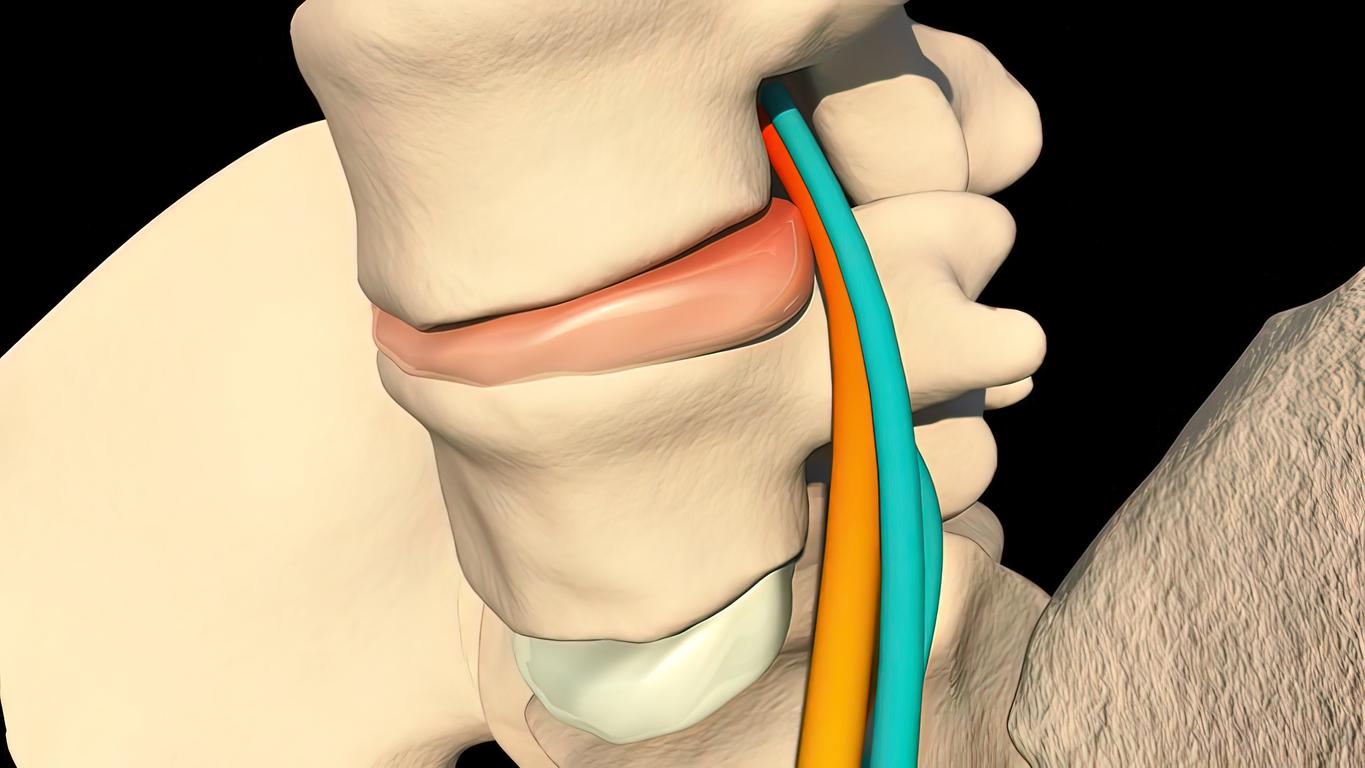Sciatica is a debilitating pain that may be due to a herniated disc. Faced with this pain, the question of surgery is often asked. One study assessed its advantages and disadvantages compared to other proposed treatments.

- Sciatica is lower extremity pain most often caused by a herniated disc.
- The choice between a non-surgical treatment or a discectomy consisting in reducing the herniated disc arises, especially in the event of an acute crisis.
- A study shows that the benefits of surgery are not established in the long term.
Sciatica is an intense pain that can affect the entire lower limb. In about 90% of cases, it is caused by a herniated disc, i.e. an intervertebral disc that has moved and presses on the sciatic nerve. This pain can be very debilitating and prevent you from going about your activities. In France, sciatica affects nearly 100,000 people each year.
Sciatica, intense pain in the event of an acute attack
Faced with such intense pain, the question of treatment is essential. Depending on the seriousness of the situation, several options can be considered. Initially, the recommendation is to perform exercises to relieve pain. If this is not enough, painkillers or corticosteroid injections can be prescribed. However, in the event of an acute crisis or permanent pain, surgery, a discectomy which makes it possible to treat the herniated disc, is sometimes recommended, even desired by the patients. But what is the interest of this intervention?
Benefits of surgery diminish over time
In a recent study published in the British Medical Journal, a systematic review and meta-analysis of randomized controlled trials showed that surgical intervention for the treatment of sciatica due to herniated disc is more effective than non-surgical treatment in reducing pain and disability. Patients who underwent surgery experienced a greater reduction in pain and decrease in functional ability. However, these benefits diminish over time. For disability, in particular, no effect was observed in the medium and long term. Surgery therefore remains an effective short-term solution, but which may require regular reassessment for comprehensive management.
First-line non-surgical treatments
Faced with this situation, it is advisable to discuss with your doctor the most suitable treatment for your situation. Indeed, while surgery can be an effective short-term solution, side effects may appear over time. Non-surgical treatments can therefore be considered first-line. It is important to follow the recommendations proposed by health professionals for comprehensive care adapted to your situation.
















